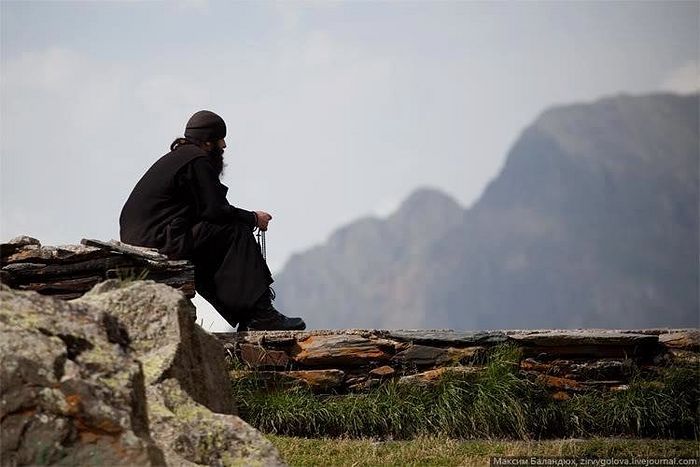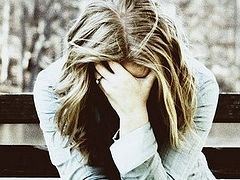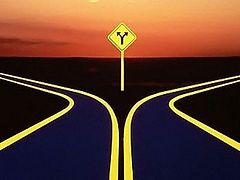I was 19 years old the first time I had a panic attack. I was trying to go to sleep in my dorm room, when suddenly my heart began racing, my mind speeding forward, with what seemed like crazy, desperate thoughts. That was in the early 70’s and the phrase “panic attack” had not been invented. What I did not know was that this was the beginning of a syndrome that would stay with me over the next 40 years. At times, it limited my life in terrible, embarrassing ways. I began a typical pattern of adjustment, in which I avoided various things that felt like “triggers.” Sometimes it felt like everything and nothing was a trigger. It was also the beginning of a journey of self-education, driven both by repeated treatment failures as well as eventual success and freedom. I have been panic-free for about five years, though I do not assume that it cannot return.
Panic is not in your head. It is not a set of thoughts, even though it sets certain thoughts racing. My dog has panic attacks during thunderstorms (he’s in the middle of one right now). He does not have a “set of thoughts.” Panic is physical. It is, essentially, an “adrenalin storm,” a cascade of chemicals that the body produces quite normally when it perceives immediate danger (the “fight or flight” syndrome). In that sense, panic is a gift from God. In the wrong situation (like trying to go to sleep), it feels like a gift from hell.
Though the advent of panic is unknown, people who suffer from anxiety and depression are far more vulnerable. Indeed, it is treated as a subset of anxiety. It can be the result of trauma or a delayed result from stress or other such things. The first attack, most often, just seems to come out of nowhere.
Panic is not your fault. Telling someone, “But there’s nothing to be afraid of,” is useless. The thoughts come after the attack has begun. It is more accurate to describe the “thoughts” accompanying panic as something other than “thoughts.” They are not the result of reasoning or beliefs. They are the noise your brain makes when it has been hit with an adrenalin bath.
The same thing is generally true about depression and anxiety. These mental experiences are also clearly physical states that can be described, measured and diagnosed. They are, however, physical states that involve the neurobiological system. As such, they produce thoughts, affect our emotions, and create other psycho/physical symptoms.
Somewhat problematic, I think, is the not infrequent distinction made between anxiety and depression as physical/medical problems and as so-called “spiritual” problems. There is no such distinction. We do not have “spiritual” problems that are not also physical problems, simply because we do not exist as some sort of divisible creatures. We could say that the whole thing is spiritual (including medicine). We do not have a “spiritual” life that is not connected with our body. We are human beings. Among the most torturous things I endured in my first year of suffering was having a group of well-meaning Christians gathered around me to cast out the demons, some of them convinced that there was some “unconfessed sin” in my life. I’m fortunate that my belief in God survived.
That said, healthy spiritual disciplines are an important part of the healing and recovery from these problems. If you search patristic material you may wonder where the references to depression and anxiety are. They are hidden in a word that is quite common: acedia (sometimes spelled “accidie”). It is described as the most difficult of all the passions and garnered the nickname “the noonday devil.” Here is a brief description from St. John Cassian:
He looks about anxiously this way and that, and sighs that none of the brethren come to see him, and often goes in and out of his cell, and frequently gazes up at the sun, as if it was too slow in setting, and so a kind of unreasonable confusion of mind takes possession of him like some foul darkness.
Gabriel Bunge, the Orthodox hermit and scholar on the works of Evagrius, offers this understanding of what he terms “despondency:”
Acedia manifests itself, then, as a type of slackening of the natural powers of the soul. Evagrius defines it in exactly the same way: Spiritual despondency is a slackness (atonia) of the soul, namely a limpness of the soul, which does not possess what is appropriate to its nature.
It interests me that modern discussions of anxiety and depression tend to alternate between a very physical account (“you have a chemical imbalance”) to very a psychological/emotional account (as in Cognitive Behavioral Therapy). The truth is that it is both/and. We do not have moods, thoughts and emotions that have no basis in the electrical chemical components of our brain. Our thinking and feeling is not detached from our body. However, our bodies are not unresponsive to our thoughts. The complex of our existence means that we can and should deal with our health in a manner that involves the whole person.
The fathers of the desert had no psychotropic medication. Their insights were drawn from what they did have. It must be borne in mind that suicide was not unknown among them (there are any number of stories that recall such things). It would be a mistake, therefore, to assume that they knew everything there was to know on the subject or that following their lead is always and entirely sufficient. It is not.
But they knew a lot. Much that they knew is buried beneath and within the terminology of desert asceticism. Just as acedia is largely the equivalent of anxiety and depression, so, many of the remedies are equally disguised. Humility is frequently described as important in overcoming acedia. Modern readers are left puzzled. How is being humble useful with depression? The humility they describe, of course, is deeply rooted in the discipline of confession. It is, in fact, the practice of “bearing a little shame.”
Modern research in Affect Theory has identified shame as the “master emotion,” and as a primary root of anxiety and depression. Of course, we live in a culture that, though riddled with shame, often treats it as a taboo topic. This is especially true for men. A book I read several years ago on male depression was aptly named, The Problem Men Never Discuss. If depression is taboo, shame is more so. The desert fathers attacked the Noonday Devil at its very roots, discovering that the “way up is the way down.” Following the path of Christ in His voluntary acceptance of the shame of the Cross, they discovered the freedom that comes when the very deepest of all wounds is healed. In that healing, they found true peace, the ability to love and forgive, and the place of the deep heart.
I recently watched an interview with Fr. Zacharias of Essex in which he said, “Only the work we do to find the deep heart remains with us beyond the grave.” That is knowledge that only comes from experience.
Again, there are many who continue with a false distinction between psychological/emotional/physical/spiritual matters. This, I think, is a product of an inadequate understanding of our human makeup. The crippling pain of depression and anxiety are often helped greatly by current medications (SSRI’s and the like). Sometimes they are life-savers. They are not, however, a “treatment” for depression and anxiety. They do not address its cause or provide healing. They simply make it bearable – and that’s nothing to be despised.
The book, Our Thoughts Determine Our Lives, recounts the life and teachings of the Elder Thaddeus of V., a contemporary Serbian monastic. He battled with anxiety issues for many years, suffering two nervous breakdowns. He tried medications to no avail (of course it was at a time well before the current protocols). His story describes certain profound spiritual conclusions, including the radical acceptance of the providence of God, that eventually gave him peace. It is worth a read by anyone who struggles with these things – at the very least for an example of holiness in the midst of this terrible form of inner struggle.
A contemporary elder of Mt. Athos makes this observation:
The image which we can use to describe the relationship of soul and brain is the violin with the violinist. Just as even the best musician cannot make good music if the violin is broken or unstrung, in the same manner a man’s behavior will not be whole (see 2 Tim 3:17) if his brain presents a certain disturbance, in which case the soul cannot be expressed correctly. It is precisely this disturbance of the brain that certain medicines help correct and so aid the soul in expressing itself correctly. (Elder Epiphanios Theodoropoulos)
It is interesting that men in contemporary culture are so shame-averse. It is, of course painful to everyone at all times. However, the fear to go there requires courage – something our culture tends to praise. I have often been struck with astonishment at the courage of some very broken people, people whom others would consider “losers,” who found a way to enter the darkest places, bear the unbearable, and return with a measure of wholeness. They are my heroes.
We are all Christians in the desert – and the desert is the landscape of our souls. The fathers of the desert found what everyone would find if they dared enter that place for the simple fact that they were humans in the same manner that we are. They did not enter the desert in order to “get away from things.” They entered the desert in order to do battle with the deepest of things and the greatest of demons. They went there in order to avoid any distraction that might draw them away from the battle.
Our culture is full of distractions. However, the noonday devil has made his way into the cities and every corner of our culture. In some segments of American society, as many as 50 percent take some form of anxiety/depression medication. Again, this is not a cure. But it points to how widespread the battle has become.
St. Seraphim of Sarov famously said, “Acquire the Spirit of Peace, and a thousand souls around you will be saved.” This is a work of courage in our day and time, one that requires wisdom and patience. Easy quips from the sidelines only belong to those who have never been there, or are afraid to admit it. I shudder when I hear someone describe medication as a “crutch.” I’ve heard the same thing said of religion. Given how crippled we are, it makes little sense to despise crutches.
It is important to move beyond the stop-gap measures that simply “keep us going.” There is a serious work of the heart to which the gospel calls us. St. Macarius observed:
The heart itself is but a small vessel, yet dragons are there, and there are also lions; there are poisonous beasts and all the treasures of evil. But there too is God, the angels, the life and the kingdom, the light and the apostles, the heavenly cities and the treasuries of grace—all things are there. (H.43.7)





